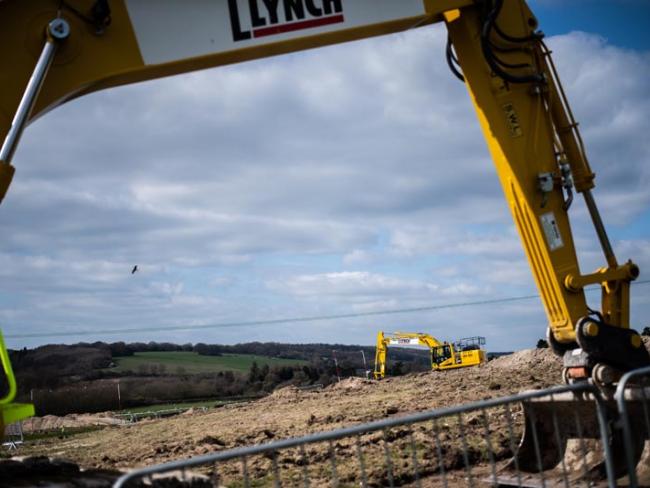9 September 2020

HS2 construction work, Great Missenden, Buckinghamshire. Photo Simon Vayro/Shutterstock.
The building of HS2 is finally moving from preparatory work to full-scale construction works, bringing around 22,000 skilled jobs along with over 2,000 high-quality apprenticeships. It will also support the creation of many other jobs, and it will play a key part in supporting Britain’s post-Covid-19 recovery.
Britain will eventually have a 21st-century railway that connects its key cities. And by transferring inter-city fast trains off the existing railway, much-needed extra capacity will be liberated for commuter services, and for many more freight trains.
At a time when the Covid-19 pandemic has resulted in a massive contraction in the economy and large scale redundancies, this is a welcome development that begins the process of building a better future, especially for Britain’s young people.
Jobs
HS2 itself is recruiting 500 new staff. The first phase of HS2 construction from London to the West Midlands will see 7,000 new construction jobs with main works contractor Balfour Beatty VINCI. The contractor has stated that it will focus on recruiting young people under 25. A separate contract to build the new HS2 terminal in London at Euston will need another 3,000 workers.
HS2 estimates that there will be 400,000 supply chain contracts providing opportunities for British businesses in the first phase alone.
Trade unions welcomed this major milestone. General union GMB’s National Secretary, Jude Brimble, said “The UK urgently needs to deliver investment in infrastructure, and the start of main works is a critical step in the construction of HS2. The construction industry is struggling and today's announcement will be a much-needed boost to thousands of workers and the wider supply chain.”
‘An important moment for Britain’s railways.’
Rail union TSSA has signed a recognition deal with HS2, and has been arguing for the HS2 project to continue right through to Scotland to reap the full benefits of high-speed travel and connectivity. Its General Secretary, Manuel Cortes, welcomed the announcement, calling it an important moment for Britain’s railways. “HS2 will bring much needed capacity to our creaking rail infrastructure and significantly boost investment in green transport.”
Apprenticeships
Many of the new apprenticeships will be supported by The National College for Advanced Transport & Infrastructure, formerly the National College for High Speed Rail.
The college opened in September 2017 with campuses in both Birmingham and Doncaster to provide the higher-level skills needed to transform Britain’s rail and transport infrastructure network. The college will also provide training opportunities for both undergraduates and graduates, not only in engineering, but in the many other disciplines that are required to build, maintain and run a modern railway.
The challenge now is to ensure that the huge quantities of building materials and railway equipment needed for the new line provides a much needed boost to Britain’s industry. The steel, the electrical equipment, the complex electronic systems, and the new trains must be made by British workers in British factories.
Now that the EU will be out of the picture and state aid will no longer be vetoed by Brussels, there should be no impediment to the government assisting in making this a reality.
The workers of Britain will be contributing billions of pounds to this project. They must see a real return on that investment.
